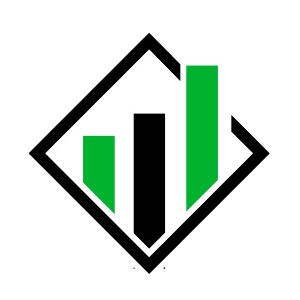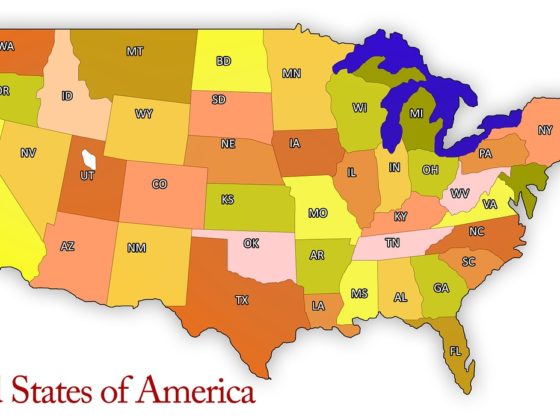Table of Contents
I. Amazon Registration for Canadian Sellers
II. Canadian Income Tax Requirements for Amazon Sellers
III. Canadian Sales Tax Requirements for Amazon Sellers
IV. United States Income Tax Requirements for Canadian Amazon Sellers
V. United States Sales Tax Requirements for Canadian Amazon Sellers
VI. Amazon Tax and Accounting-related Questions from Canadian Sellers
VII. References
I. Amazon Registration for Canadian Sellers

What do I need to register for an Amazon Sellers account?
You need to be a resident of one of the countries accepted for registration (see the link in the references section). You need to have an address, valid phone number, and internationally chargeable credit card.
In addition, as part of the registration process, you may be asked to provide the following documentation:
For individual identification, government-issued photo ID (e.g., Permanent Resident card or passport). The document needs to show the following fields:
- Name
- Date of Birth
- Expiry Date
- Signature of the bearer (if applicable)
- Country of issuance or country of citizenship
For business identification, you may be asked to provide confirmation of business identity. For example:
- Business registration documents (certificate of incorporation, business license, etc.)
- Proof of business address (mailed bank statements, utility bills, etc.)
What does it mean to be a resident for Amazon Seller registration purposes?
For Canadian Amazon Sellers that would be a permanent resident or a citizen status.
Can I use my Canadian bank account for registration?
Yes. But you will be charged a 3.5% currency conversion fee when you are transferring the amounts to Canada for your U.S. sales. A USD checking account with a Canadian bank would not work either (in fact you may be charged the conversion fees twice) i) when Amazon sends you the money to a USD account in CAD and ii) when your bank converts the delivered CAD amount back to USD).
We recommend opening a separate cross-border USD checking account (see the link in the references section). Some banks like RBC, BMO and TD are offering these types of business accounts. There are also virtual banks like OFX and Transferwise who are offering online bank accounts that function like normal U.S. bank accounts.
Having a separate bank account will also save you some FX conversion costs if you want to pay your suppliers in USD directly from your account without paying an exchange, credit card or PayPal fees.
Do I need to open a U.S. business entity (LLC, S-Corp, C-Corp) to register for an Amazon Sellers account?
No. You don’t need to open a U.S. entity to start selling on Amazon in the U.S. In fact, it will add another layer of compliance and complexity to your business.
What type of Canadian entities can register for an Amazon Sellers account?
You can register your business on Amazon as one of two entity types:
- Individual / Sole Proprietorship
- Business (Partnership or Corporation)
Should I open a Canadian corporation to sell on Amazon?
A corporation is not a requirement. You can sell as an individual seller / sole proprietor. Opening a corporation should be a business decision unique to your circumstances. We discuss pros and cons of main business structures for your e-commerce business in this article.
Do I need an Employer Identification Number (EIN) to start selling on Amazon.com as a Canadian seller?
No. You don’t need an EIN to start selling on the Amazon.com account.
When do I need an Employer Identification Number (EIN)?
If you are planning to use Fulfilled by Amazon (FBA) services and import goods into the U.S., then you will need an EIN for filing your income tax returns with the Internal Revenue Service (IRS) as well sales tax and state tax returns with individual states. You also may be asked to provide an EIN or W8/W9 forms when you deal with U.S. vendors.
How can I get an EIN?
If you need an EIN, you can call the Internal Revenue Service at 1-267-941-1099 Option 1 (not a toll-free number). The agent will ask a few questions. For example:
- Are you based in the U.S.?
- If not, what country is the business located?
- What is the mailing address?
- What type of entity are you?
- What is the legal name of the entity?
- When was the business started?
- How many people work in the company?
- What is the reason for applying?
The Internal Revenue Service (IRS) will send you a letter to the mailing address provided. Please make sure you save that letter when you receive it.
Note that once you obtain an EIN, the IRS will expect you to start filing income U.S. tax returns for that entity on an annual basis. Your compliance costs will increase as you will start needing an accountant who is familiar with e-commerce and U.S. filing requirements for Canadian companies.
If you don’t need the EIN any longer, you may request the IRS to close your account in writing. The account cannot be closed if you have any returns or taxes outstanding with the IRS (link for more details in references).
What are the forms W9, W-8BEN or W-8BEN-E and when do I need them?
The form W9 identifies you as a U.S. taxpayer. It can only be provided by U.S. individuals or tax entities.
The forms W-8BEN (for individuals) or W-8BEN-E (for businesses) identify you as a foreign person or entity. By law, non-resident payments are subject to the U.S. withholding tax of 30%. These forms establish your status as a foreign person or entity and may decrease the withholding tax to 0%, depending on the tax treaty between the U.S. and the country where the foreign person or entity is resident.
The U.S.-Canada Tax Treaty reduces the withholding taxes paid by foreign Canadian entities to 0%. You should have that form available if any of the U.S. vendors request it.
Note that filling out forms W-8BEN or W-8BEN-E does not release you from the responsibility to file U.S. income tax returns if you earned Effectively Connected Income in the U.S. (more details on that further down the article).
II. Canadian Income Tax Requirements for Amazon Sellers

If you decide to open a Canadian corporation for your Amazon e-commerce business, what corporation type is better, provincial or federal?
There is no difference from the tax standpoint. Both types of corporations are taxed exactly the same. The main difference between the two has to do with the name protection. With a federal corporation, your business name is protected across all provinces; with provincial it is only protected in the province of incorporation.
What are the advantages and disadvantages of incorporating my Amazon e-commerce business?
The advantages include:
- Significant tax deferral on the first $500,000 of net income
- Tax planning opportunities (salary vs. dividends options)
- Limited liability protection
The disadvantages include:
- Higher compliance, maintenance and accounting fees
- The money belongs to the corporation (need more planning around it)
- Harder to get insurance in the U.S. for a non-U.S. entity
A more detailed discussion of the advantages and disadvantages of incorporating an e-commerce business is discussed in this article.
When should I incorporate my business?
Generally, we recommend incorporating if you want to limit your liability and do not need all the profits earned by the business for your personal expenses.
If you are just starting out and testing the waters, you may decide to operate as a sole proprietorship for some time to limit compliance costs. You don’t need a corporation to start selling your products in Canada or in the U.S.
We recommend comparing compliance costs against long-term benefits and see if that legal structure is right for your online store at the moment.
What are my income tax obligations as an Amazon seller in Canada?
As a Canadian resident, your worldwide income is subject to Canadian tax.
If you operate as a sole proprietor or a partnership, you will need to fill out form T2125 for your Amazon e-commerce business income from all countries. If you operate multiple businesses, you will need to fill out separate T2125 forms for each type of business.
The net between revenues and expenses for each business is what will be added to your personal income on your T1 return and taxed at your personal marginal tax rates.
The tax return will need to be filed by June 15th of every year, with interest starting to accrue on tax amounts due from April 30.
If you operate a corporation, you will need to file a T2 for your corporation within six (6) months of the fiscal year-end, with interest starting to accrue on tax amount due from three (3) months after the fiscal year-end.
III. Canadian Sales Tax Requirements for Amazon Sellers

What is sales tax and how is it different from income tax?
Sales taxes are the amounts that a state/province obligates businesses to collect from customers on behalf of the government. The sales tax amount is charged on top of the sales price of the product and then remitted to the government when the sales tax filing is due. The sales tax is not coming out of businesses’ pockets.
Whereas income taxes are charged by governments on the net amount between revenues and expenses that was earned by a business during a specific period of time, income tax is an expense to a business.
What are the sales tax requirements (GST/HST/PST) in Canada for Amazon Sellers?
GST = Goods and Service Tax (charged by federal government)
HST = Harmonized Sales Tax (charged by federal government)
PST = Provincial Sales Tax (charged by provincial government)
RST = Retail Sales Tax (charged by provincial government)
QST = Quebec Sales Tax (charged by Quebec provincial government)
In general, Canadian and non-Canadian businesses operating in Canada should charge and remit sales taxes on their products if their worldwide taxable sales revenue in the last or any of the last four (4) consecutive quarters exceeded $30,000.
The percentage of sales tax charged depends on i) the province in which the business is located (i.e., place of business) ii) the province in which the product is delivered (i.e., place of supply).
The current GST/HST sales tax rates for product delivery to these provinces are:
- 5% GST in Alberta, British Columbia, Manitoba, Northwest Territories, Nunavut, Quebec, Saskatchewan, and Yukon
- 13% HST in Ontario
- 15% HST in New Brunswick, Newfoundland and Labrador, Nova Scotia, and Prince Edward Island
In addition to GST/HST collections, if the business is located in a non-participating province (i.e., non-HST province), it has to collect the provincial taxes (PST/RST/QST).
You don’t have to collect PST/RST if you don’t have a physical presence in that province (with the exception of Quebec, see update below).
For example, if your business is located in Ontario and sells a product to a BC customer, you need to charge 5% GST on top of the sale price.
Another example: your business is located in British Columbia and ships your product to Manitoba. You need to collect 5% in GST from your customer.
However, if you are located in British Columbia and ship the product to a customer in British Columbia, you will need to collect 5% in GST and 7% in PST. The GST portion needs to be sent to the federal government; the PST portion will need to be sent to the provincial government.
*** Update 01/01/2019: We are seeing some major changes in the provincial sales tax legislation in Canada. For sales to Quebec residents, starting from January 1, 2019 online sellers have to register and start collecting QST on top of GST regardless of where they are located in the world.
Canadian online sellers have until September 1, 2019 to register and start collecting QST.
What sales taxes should I collect if I use Amazon FBA services for my Canadian sales?
It will depend on the location of the Amazon warehouse from where the purchase order is dispatched. If the Amazon warehouse is located in a participating province (i.e., HST province) they should only collect federal sales taxes (GST/HST).
If the Amazon warehouse is located in a non-participating province (i.e., non-HST province) and there was a sale made in that province, they should collect federal sales taxes (GST/HST) AND provincial sales taxes (PST/RST/QST) for that sale.
We have created this Google Sheet to summarize Canadian Sales Tax requirements and make things clearer:
Canadian Sales Tax Grid For Amazon Sellers
Note: you will need a Google account to access this document.
IV. United States Income Tax Requirements for Canadian Amazon Sellers

How does the U.S. income tax work for Canadian businesses?
To understand the applicable U.S. income tax laws, we need to understand how the U.S. tax system works. (Note that the U.S. tax system is one of the most complex systems in the world. You will need to consult with a professional cross-border tax accountant to get proper advice for your specific situation).
In general, to determine how your U.S. earned income should be taxed, you will need to determine the degree of your company’s involvement in the U.S.
Level 1. Your company does not have any connections to any of the U.S. suppliers. You are simply soliciting, accepting and fulfilling orders out of Canada (e.g., Amazon Fulfilled by Merchant). You don’t have any offices and any employees on the U.S. soil. You don’t use any vendors and don’t deal with any suppliers.
Level 2. Your company is using U.S. suppliers and logistics (i.e., Fulfilled by Amazon or other 3rd Party Logistics) to produce revenue, but does not have employees, office or warehouses in the U.S. In that case, your company is deemed to be “engaged in a trade or business in the United States (ETBUS)” and have generated “Effectively Connected Income (ECI)”.
Level 3. Your company has an office or employees in the U.S. (i.e., fixed place of business). You regularly conduct business with U.S. companies. You have continuous projects (over 12 months) or you provide services for 183 days or more in the U.S. In those cases, you will be deemed to have an Effectively Connected Income (ECI) and a Permanent Establishment (PE) in the U.S.
What constitutes an Effectively Connected Income (ECI) for Canadian Amazon Sellers?
In order to have ECI in the U.S., you need to have considerable, continuous, and regular business activity. Examples of that activity include:
- Using 3rd Party Logistics (3PL) like Amazon FBA
- Use of U.S. facilities (warehouses, storage, display)
- Passing the title of imported goods in the U.S. (if you are importing from another country)
- Using dependent agents (like employees or salespersons) to conduct business in the U.S.
- Having a US-based bank account
Note that isolated, sporadic transactions will not be considered as the U.S. trade or business income.
What constitutes a Permanent Establishment (PE) for Canadian Amazon Sellers?
To be deemed to have a PE in the U.S., you will generally need to be physically present in the country. For example,
- Fixed place of business (office, employees, factory)
- Presence of dependent agents who has the authority to execute contracts (e.g., a sales agent who travels to the U.S. frequently to conclude contracts)
What are my income tax obligations in the U.S. as a Canadian Amazon Seller?
Now that we discussed three general scenarios of how foreign businesses are taxed in the U.S., we can discuss the filing requirements for your Amazon e-commerce business.
Level 1 scenario: In case if you don’t have any Effectively Connected Income (ECI) in the U.S., you are not obligated to file any income tax returns with the Internal Revenue Services (IRS). Your net income from worldwide sources will be fully taxed in Canada.
Level 2 scenario: In case if you have Effectively Connected Income (ECI), but no Permanent Establishment (PE), your business needs to file:
- For individuals/sole proprietorships/partnerships: file Form 1040NR U.S. Non-resident Alien Income Tax Return and Form 8833 Treaty-Based Return Position Disclosure Under Section 6114 or 7701(b) to claim tax relief under the U.S.-Canada Tax Treaty.
- For corporations: file Form 1120-F U.S. Income Tax Return of a Foreign Corporation together with Form 8833 Treaty-Based Return Position Disclosure Under Section 6114 or 7701(b) to claim relief under the treaty.
These are informational forms, your business will not be liable for income taxes in the U.S. However, the IRS will want to know about your business activity in the U.S. as a foreign corporation.
Level 3 scenario: If you have Effectively Connected Income (ECI) AND a Permanent Establishment (PE) in the U.S., then you need to file the 1040NR (for individuals/ sole-proprietors) / 1120-F (for corporations). Form 8833 is not necessary since your income will no longer be protected by the U.S.-Canada Tax Treaty.
In addition, your company will be subject to the state filing requirements in the state where you are deemed to have a Permanent Establishment (PE).
If you have ECI & PE in the U.S., your U.S-sourced income will be effectively first taxed in the U.S. and then in Canada. However, you can claim a foreign tax credit in Canada to avoid double taxation on the Effectively Connected Income in the U.S.
Finally, note that if you have opened an EIN for your business (for importing or bank account purposes, for example), the IRS will be expecting a tax return from your business regardless of the scenario.
What are the filing deadlines for U.S. income tax returns?
For individuals/sole proprietors: 15th day of the 6th month following calendar year-end (i.e., June 15).
For Canadian corporations with ECI, but no PE: 15th day of the 6th month following the fiscal year-end.
For Canadian corporations with ECI and a PE in the U.S.: 15th day of the 4th month following the fiscal year-end (15th day of the 3rd month with June 30th year-end).
You can also request an extension in writing before the deadline (not discussed here).
Non-disclosure penalties can be levied against your business in case you don’t file, even if there was no taxable income or full reduction under a tax treaty.
Make sure you file your U.S. income tax returns on time to avoid those penalties.
What are the filings requirements if I opened a U.S. corporation for my Amazon business (C-Corp, S-Corp)?
The IRS will expect you to file U.S. tax returns for a U.S. corporation. At the same time, if you are a resident of Canada for tax purposes (generally, if you live in Canada for more than 183 days a year), then the Canadian government will declare your business entity a resident of Canada for Canadian tax purposes.
You will end up paying higher compliance costs as you will need to file both U.S. and Canadian taxes for the same business entity.
Double taxation can be avoided by the CRA granting foreign tax credits on taxes paid to the IRS.
What if I opened a U.S. LLC for my Amazon business?
An LLC owned by a single non-resident owner is considered to be a disregarded entity. If you do have Effectively Connected Income (ECI), but no Permanent Establishment (PE), then you will need to file 1040NR form along with Schedule C form. In addition, you will be required to file Form 5472. For U.S. tax relief under the treaty, you should file Form 8833.
You will also need to obtain an Employer Identification Number (EIN) and Individual Tax Identification Number (ITIN) to file these forms.
If you don’t have any Effectively Connected Income (ECI), then you are still obligated to file. You should file 1120 Pro Forma and Form 5472 to avoid penalties.
To make things clearer, we have created this Google Sheet to summarize U.S. and Canadian Income Tax Filing requirements:
U.S. & Canada Income Tax Filing Requirements for Amazon Sellers
Note: you will need a Google account to access this document.
V. United States Sales Tax Requirements for Canadian Amazon Sellers

What makes the U.S. sales taxes complicated for Amazon Sellers?
The biggest problem with sales taxes is tracking, filing and reporting them to appropriate authorities. If you sell your products in Canada from a participating province (i.e., HST province), you only need to track one GST/HST account. If you sell from a non-participating province (i.e., non-HST province) to customers in that province, then in addition to GST/HST, you need to collect, track and remit PST/RST/QST provincial sales tax.
That creates additional compliance and filing requirements for small businesses, but it is fairly manageable compared to the U.S.
In contrast, the U.S. has 50 states that have multiple counties and municipalities each imposing their local taxes. Washington DC and 45 states collect statewide taxes. In addition, local taxes are collected in 38 states by various counties and municipalities.
What are the U.S. sales tax requirements for Canadian Amazon Sellers?
By law, an Amazon seller is obligated to collect and remit the sales tax if the goods are delivered to a customer AND there is a sales tax nexus present in that state. In general, a presence of an Amazon warehouse constitutes a sales tax nexus, and hence, the business is obligated to collect and remit sales taxes to that state or county.
In addition, a number of states will force sellers to collect sales taxes if you make a certain amount of sales in that state (called economic nexus).
If one would do it by the book, it would create immense costs of compliance for Amazon sellers in the range of tens of thousands of dollars. The business would need to register for a sales tax account with every state and county where they ship their products and where there is a sales tax nexus.
Then an Amazon seller would need to start collecting and tracking all sales taxes in separate accounts using specialized software. Finally, sales taxes should need to be remitted to every state or county before specific deadlines.
The costs of software and tax filing with every state and county will become very high.
Do I really need to register in every state, collect and remit the sales tax amounts for my Amazon business?
The U.S. state tax laws say yes. However, from a business owner standpoint, you need to make a business decision. Weighing the risk and exposure to potential taxes and penalties vs. cost of compliance is something you will need to consider.
If you are an Amazon seller making more than seven-figures a year, does it make sense for you to pay for all the accounting and tax compliance fees? Probably, yes.
If you are an Amazon seller who sells products in smaller quantities, can your business live with the risk of one or two states coming back to you to collect taxes plus penalties & interest? You should make that decision for your business.
What are my sales tax obligations if I do drop shipping using Amazon or any other services in the U.S.?
By using drop shipping services, you are effectively using suppliers and 3rd Party Logistic (3PL) services in one of the states. If you sell in the states where those suppliers have a sales tax nexus (warehouse, office, factory, etc.), then you are obligated to collect and remit sales taxes.
Does the U.S.-Canada Tax Treaty provide relief from sales and state taxes for Canadian sellers?
No. The U.S.-Canada Tax Treaty only provides relief from federal income tax for businesses that don’t have a permanent establishment (PE) in the U.S. Individual states are not bound by tax treaties with Canada or any other countries.
Will I need to collect sales taxes if I don’t use Amazon FBA services and ship products directly from Canada to the U.S.?
No. If you are fulfilling the orders yourself without using U.S. logistics and warehouses, then you should not collect any sales tax since your business will not have a sales tax nexus in any of the states.
VI. Amazon Tax and Accounting-related Questions from Canadian Sellers

What are my record-keeping obligations as an Amazon Seller?
Any individual or business in Canada is obligated to keep records and supporting documentation for six (6) years after the end of tax year. Since you file after the end of the tax year, we recommend keeping records for at least seven (7) years.
What accounting software do you recommend using for Canadian Amazon Sellers?
We recommend accounting software that is cloud-based and integrates well with inventory tracking apps. Also, the software needs to track foreign exchange gains/losses since you may have sales income in different currencies.
The two biggest accounting software providers Quickbooks Online and Xero will be able to do the job for you.
What are the most common tax deductions allowed for Canadian Amazon Sellers?
Amazon sellers may claim the cost of goods sold, home office expense, promotional expenses, business travel, accounting, and legal fees as part of their income tax deductions.
Note that cost of inventory that was not sold is not tax deductible. It can only be deducted when a sale was made.
You can find a complete list of CRA-approved small business tax deductions under this link.
What is the likelihood of a CRA / IRS audit for my Amazon e-commerce business?
Businesses are selected for audits for a multitude of reasons. The major reasons why your business can be selected for an audit are:
- Random selection
- Review of a specific industry in a given year
- Lack of compliance in prior years
- Higher than normal or unusual deductions compared to industry averages and benchmarks
- Cross-matching from other businesses (e.g., an auditor will check if you reported income that was expensed by another business)
- Anonymous tips from exes, nice neighbours, bad friends through the snitch telephone line (this is more common than you think)
Can you give some accounting advice for those Amazon Sellers who are just starting out?
We can suggest a couple of accounting tips for new Amazon sellers:
- Keep clean records and receipts for all transactions
- Create separate bank and credit card accounts for business expenses
- Use accounting software and enter transactions regularly
- Speak with an accountant about how to organize your business before you open anything
- Know all your filing and reporting requirements
- Educate yourself about business related terms so that you can speak more easily with your accountant
When should I outsource bookkeeping and accounting for my Amazon business?
It depends. If you are bootstrapping and just starting out, you may have time to do bookkeeping and accounting yourself. However, as your sales grow and your business processes become more complex, you may need to consider outsourcing your accounting to a professional firm.
Ask yourself this question: do you save by doing accounting yourself, or do you save by outsourcing it?
What are your services and how much do you charge?
We are providing month-to-month accounting services to our e-commerce clients.
We can also help with incorporation, tax filing, and system setups.
Our current pricing can be found on this page.
VII. References
Documentation Requirements for Amazon Registration
List of countries accepted for Amazon Sellers registration
Amazon Tax Interview Guide
https://developer.amazon.com/tax-interview/help?nodeId=201588330&locale=en_U.S.
General GST/HST Information for Registrants
Additional Information on U.S. Sales Tax for International Sellers
https://blog.taxjar.com/international-amazon-fba-sellers-us-sales-tax/
https://blog.taxjar.com/international-sellers-deal-sales-tax-u-s/
IRS information on how to apply for an EIN
https://www.irs.gov/businesses/small-businesses-self-employed/how-to-apply-for-an-ein
IRS information on how to close an EIN
https://www.irs.gov/businesses/small-businesses-self-employed/canceling-an-ein-closing-your-account
RBC cross-border account services
https://www.rbcbank.com/cross-border/us-bank-accounts.html
TD cross-border account services
https://www.tdcanadatrust.com/products-services/banking/cross-border-banking/index.jsp#
Quebect Sales Tax changes
https://www.revenuquebec.ca/en/press-room/tax-news/details/152500
Images Credit:






Thanks for writing up this article.
It seems complex to sell on Amazon US as a Canadian entity.
I’m a Canadian. I have a BC Corporation. I have a GST/HST account and a PST account.
My team and I intend to sell on Amazon Canada using Amazon FBA.
But we want to also sell our goods using Amazon FBA in the US.
Our goods are manufactured in China.
Most likely we will send the products to Canada and US directly from China.
Would I need to have a US business entity? Do I need an EIN number?
Thank you,
MTT